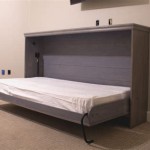How to Move Bedtime Earlier
Shifting your bedtime earlier can be a challenge, especially if you're accustomed to late nights. However, the benefits of a consistent earlier bedtime are numerous, including improved sleep quality, enhanced mood, increased energy levels, and better overall health. This article provides practical strategies for moving bedtime earlier, empowering you to establish a healthier sleep routine.
Establish a Consistent Sleep Schedule
The first step towards an earlier bedtime is establishing a regular sleep-wake cycle. The body's natural sleep-wake rhythm, known as the circadian rhythm, is regulated by internal and external cues. By maintaining a consistent sleep schedule, even on weekends, you signal to your body when it's time to sleep and wake up. This consistency helps regulate your circadian rhythm and promotes more efficient sleep.
Aim to go to bed and wake up at the same time each day, even on weekends. This routine assists in aligning your body's natural sleep-wake cycle, contributing to better sleep quality. While it may require some initial effort, sticking to this schedule consistently will eventually make it easier to fall asleep and wake up at your desired times.
Create a Relaxing Bedtime Routine
A relaxing bedtime routine signals to your body that it's time to wind down. This routine can include activities that help you unwind, such as taking a warm bath, reading a book, listening to calming music, or practicing relaxation techniques like deep breathing or meditation.
Avoid engaging in stimulating activities like watching television or using electronic devices before bed. The blue light emitted by these devices can interfere with melatonin production, a hormone that regulates sleep. Instead, opt for calming activities that promote relaxation and prepare your body for sleep.
Optimize Your Sleep Environment
Creating a conducive sleep environment is crucial for achieving restful sleep. This involves ensuring your bedroom is dark, quiet, and cool. Consider using blackout curtains or an eye mask to block out light, earplugs or white noise to minimize noise, and a comfortable mattress and pillows to support your body during sleep.
Maintaining a cool bedroom temperature is essential for optimal sleep. The ideal temperature for sleep is typically between 60 and 67 degrees Fahrenheit. Ensure your bedroom is well-ventilated and avoid using heavy blankets or clothing that can cause overheating.
Avoid Caffeine and Alcohol Before Bed
Caffeine and alcohol, while often consumed before bed, can disrupt sleep patterns. Caffeine is a stimulant that can interfere with sleep onset and duration. Alcohol may initially induce sleepiness, but it can lead to fragmented sleep and awakenings later at night.
Minimize or eliminate caffeine intake several hours before bedtime. Limit alcohol consumption, as it can decrease the quality of sleep and impair sleep-related breathing. These substances can have lasting effects on sleep quality, making it essential to avoid them before bed.
Engage in Regular Exercise
Regular physical activity can improve sleep quality. However, avoid strenuous exercise too close to bedtime, as it can make falling asleep more difficult. Aim for moderate-intensity exercise in the morning or early afternoon. This can help regulate your sleep cycle and promote better sleep quality.
Exercise can help regulate your circadian rhythm, making it easier to fall asleep at your desired time. Physical activity also reduces stress and anxiety, which can contribute to sleep problems. However, it's crucial to avoid exercising too close to bedtime as it can have an energizing effect that can disrupt sleep.
Seek Professional Help When Needed
If you're struggling to move bedtime earlier or you experience persistent sleep problems, it's essential to seek professional help. A sleep specialist can conduct comprehensive evaluations, identify underlying sleep disorders, and offer personalized recommendations for treatment. They may recommend therapies such as cognitive behavioral therapy for insomnia (CBT-I) or other strategies to improve sleep quality.
Don't hesitate to consult a healthcare professional if you experience difficulty falling asleep, frequent awakenings, daytime sleepiness, or other persistent sleep problems. They can help you understand the underlying causes of your sleep issues and develop a tailored treatment plan to address them.


Tips For Moving Bedtime Up Before School Starts The Organized Mom

Bedtime Bedlam Story Bird

Consistency And Routine Are Key To Moving Bedtime Earlier

Tips For Moving Bedtime Up Before School Starts The Organized Mom

How To Sleep Early 15 Steps Shift An Earlier Bedtime

How Can I Move My Toddler S Bedtime Earlier Safe Sleep Space

How To Sleep Early 15 Steps Shift An Earlier Bedtime

Bedtime Fading Earlier Bedtimes For Kids Raising Children Network

7 Ways To Actually Get Bed An Hour Earlier







